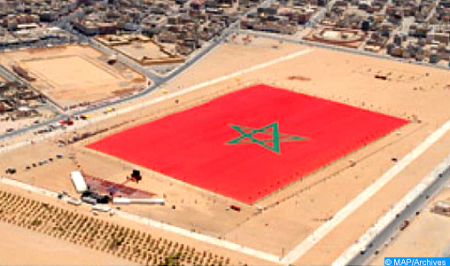Spain’s New Position: Major Turning Point in Evolution of Moroccan Sahara Issue in Latin America – Conference
A conference held at the initiative of the Coalition for Autonomy in the Sahara highlighted, Tuesday in Mexico City, the positive momentum of the Sahara issue, both at the UN and on the ground, in light of the Spanish government’s recent decision to support Morocco’s Autonomy Initiative as the most realistic, serious and credible basis for the final settlement of this regional dispute. The conference, held in virtual format, was attended by former polisario founding member and president of the Alter Forum International Institute for Saharan Studies, Bachir Edkhil; Spanish university professor and expert in Maghreb issues, Rafael Esparza Machín; Professor of International Law at the National Autonomous University of Mexico, Juan de Dios Gutiérrez Baylón, an expert in international development, Pedro Díaz de la Vega and president of the Association of Moroccan Jews in Mexico, Moises Amselem Elbaz. Edkhil, the moderator of the conference, focused the debate on the virtuous and irreversible momentum of the Sahara issue in the light of Spain’s recent decision, which he said contributes greatly to the final settlement of this conflict. The various political, economic and social achievements in the Moroccan go beyond the fixed and outdated positions of Algeria and the polisario, which are “incongruous relics in today’s world,” he said. For his part, Spanish expert Esparza Machín welcomed Spain’s historic, courageous and salutary decision at all levels, praising the significant efforts made since 1975 by Morocco in its Sahara. These efforts, he said, have established the region as a major economic hub at the continental and international levels. According to the expert, the neutrality observed by Spain no longer responded to the evolution of the issue both at the UN and on the ground. Spain should no longer remain on the sidelines of this fundamental dynamic and remain cloistered in a “comfort zone”, which was not, in light of the depth of its relations with Morocco, Machín underlined. The Spanish expert recalled that the Autonomy Initiative was proposed by Morocco in response to the call of the UN Security Council, which described it as “serious and credible” in its 18 consecutive resolutions since 2007. He explained in that regard that the language of Spain’s new position is in line with international law, as it echoes the language of the UN, just as France, the United States and Germany have done. For their part, Mexican experts stressed the importance for Latin American countries, especially those that continue to recognize the so-called “sadr”, to emulate Spain’s example by giving clear and frank support to the autonomy initiative. These figures were speaking at a teleconference held in Mexico City, as part of a series of events initiated by the Coalition for Saharan Autonomy to promote the prospects of the Autonomy Initiative in Latin America.

